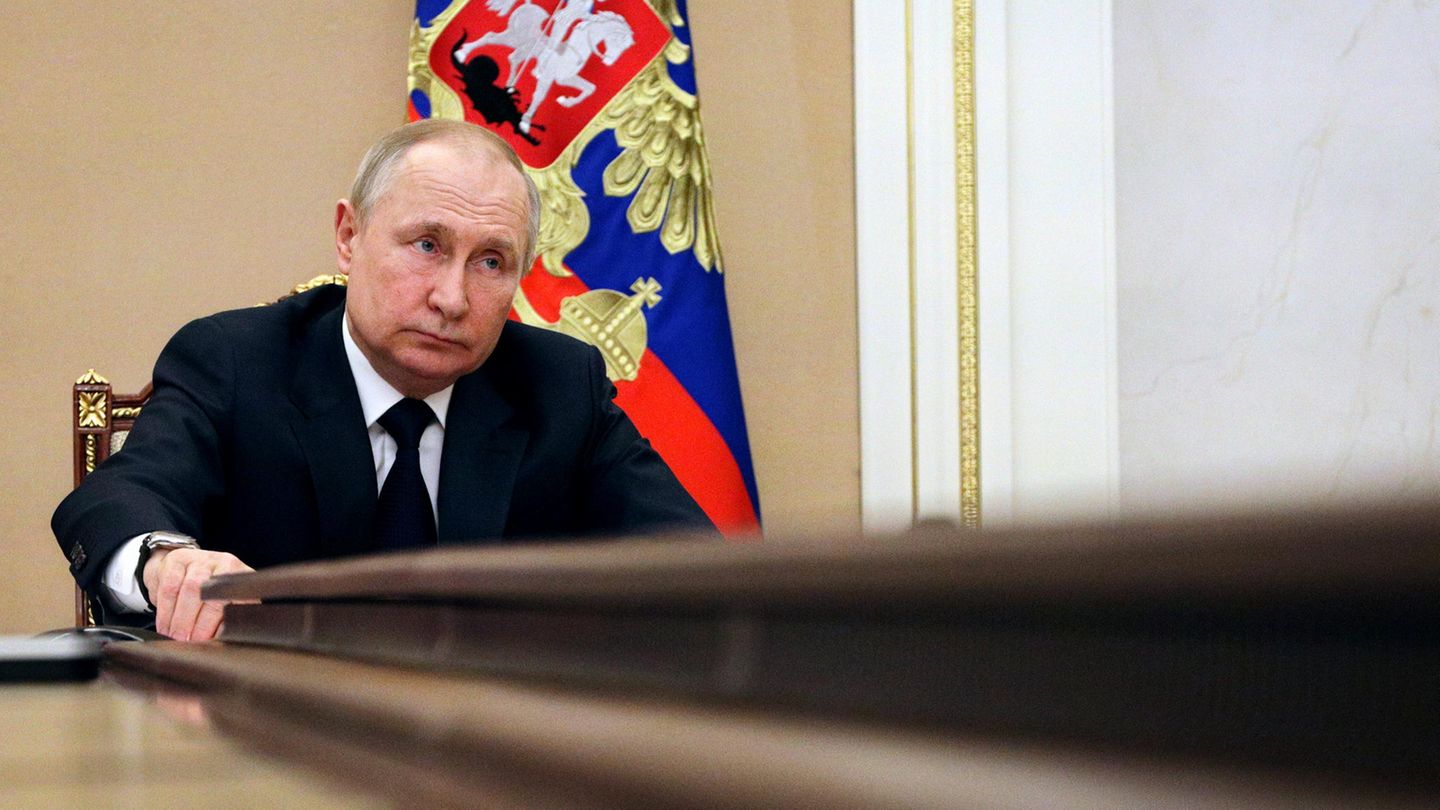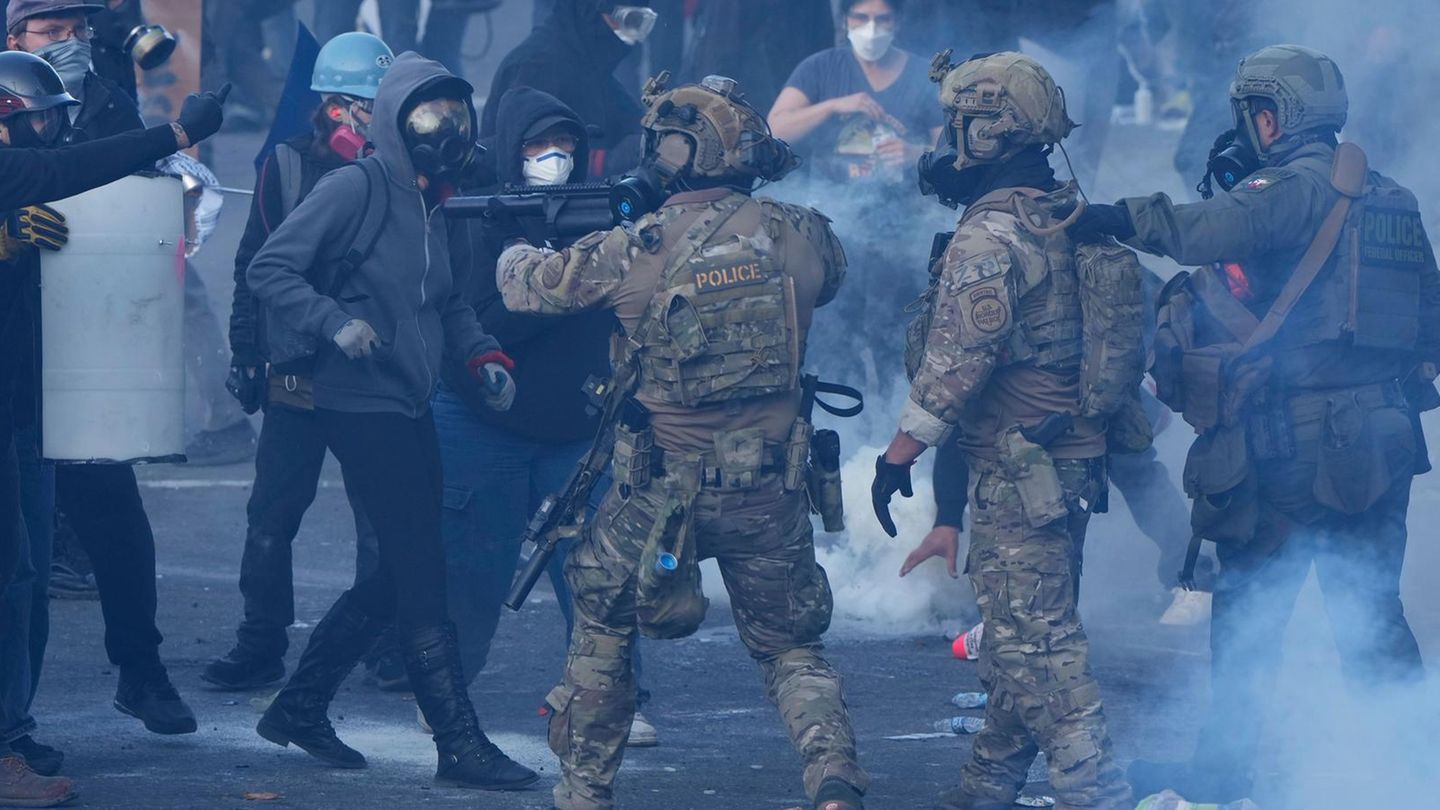Hard, harder – and then? The path of maximum toughness against Russia is having its first consequences, but does not yet show Vladimir Putin a way out. How could the spiral of escalation be stopped?
How does the war end? The US predicted the start of the Russian invasion of Ukraine early on, when the rest of the world was still skeptical about the initial speculation.
Now, after 19 days of violence, the question is: when will Russia withdraw its troops? This prediction turns out to be far more difficult.
There is much to suggest that Russian President Vladimir Putin hoped his war of aggression would result in a lightning victory. But the Ukrainian military and people have shown unexpected resilience. Several NATO and EU countries, not least Germany, are sending weapons and money in support, have imposed unprecedented economic and financial sanctions on the aggressor – and are preparing more.
All in the hope of dissuading the Kremlin ruler from his war course. So far in vain.
Russia’s war of aggression continues. Reports of civilian casualties are increasing. President Putin is obviously allowing the military actions to be brutalized in order to still achieve his goals. Even the open economic war against Russia has so far not led to any rethinking in the Kremlin.
The Russian economy is groaning under the massive sanctions, which are also changing the everyday life of the citizens. They are now feeling the effects of Putin’s politics, taking to the streets against it and accepting prison sentences for their protest. More and more are leaving the country.
But Putin is unyielding, as shown in the most recent conversation with French President Emmanuel Macron and Chancellor Olaf Scholz. The spiral of escalation keeps turning.
There are now voices warning that pushing the Russian regime into a corner could be counterproductive – and have catastrophic consequences.
“There is only one thing worse than a strong Russia under Putin”
The warnings are based on an assumption: Putin is aware that he can no longer go back and can only go forward. “He must brutalize military actions, this is the only way he can still achieve his goals”, . “He cannot back down from the demands with which he founded this war.” After the military actions, it would be “downright absurd,” giving in would be a “foreign policy fiasco” and, last but not least, “a defeat in the war” for Russia.
This fuels concern that the Kremlin ruler could resort to other weapons in the ongoing war. “One reason Putin is resorting to the possibility of extreme tactics such as using chemical weapons is that he is frustrated that his forces are not moving forward,” said Jake Sullivan, US President Joe Biden’s national security adviser.
The Western alliance does not rule out the worst, including expanding the attack to other neighboring countries and even using nuclear weapons. President Biden has therefore repeatedly shown his Russian counterpart where the red lines are: “Every inch” of NATO territory will be defended against a Russian attack. On Saturday, the US, the EU and other allies imposed . “Putin is the aggressor,” President Biden said, “and Putin must pay the price.”
But there is neither an end to the invasion nor a way out of the spiral of escalation. This hopelessness gives Thomas Friedmann, columnist for the New York Times, cause for concern. “Because there’s only one thing worse than a strong Russia under Putin – and that’s a weak, humiliated Russia crumbling and locked in an ongoing internal leadership turmoil (…) for power and for all the nuclear warheads ( …) argues”, .
“It’s time to offer Russia an exit,” demands Wang Huiyao, founder and chairman of the think tank “Center for China and Globalization”, in a . “We are in a spiral of escalation. The increasing pressure on Putin will probably make the situation even more dangerous,” believes the political adviser. The Russian President could be fooled into believing that he must take ever more extreme measures.
China can help outline the “exit,” Wang Huiyao said. The country has political and economic interests at the end of the war, is closely interwoven with both warring parties and could possibly influence Russia. Beijing’s goal must be to find a solution that Putin can sell to his home audience “for profit” while protecting Ukraine’s core sovereignty. That is a “difficult challenge” and requires “creative diplomacy,” writes the political advisor. But that’s not impossible.
Any hopes of the western alliance that China could use its influence to mediate with Russia have not yet been fulfilled. Beijing continues to cling to its meaningless ambiguity in the Ukraine war, and to this day has not named or condemned the Russian war of aggression as such. However, the invasion puts the “rock-solid” friendship to the test, isolated Russia is practically left with only its Chinese partner – and Beijing is probably the closest to itself ().
The risk potential remains high
Meanwhile, Russia and Ukraine continued negotiations. The delegations negotiated via video link on Monday, and talks should continue on Tuesday. It is a technical break for additional talks in working groups and a “clarification of individual definitions,” Ukrainian presidential adviser Mykhailo Podoliak tweeted on Monday. “Negotiations are ongoing.”
It was already the fourth meeting in a larger group. Most recently, the delegations met in person in Belarus. So far there has not been a breakthrough, but in the past few days there has been. Both sides were cautiously optimistic at the weekend.
“The only scenario that will really work is one in which Russia pulls out of Ukraine,” says Fiona Hill, a former adviser to former US President Donald Trump and a Washington expert on the Kremlin. But she also says: “Putin can’t lose,” so you have to “find some kind of mechanism to make Putin feel like he’s getting some of it (a withdrawal from Ukraine, d. editor) Has.”
In the podcast, Hill warns against pushing Putin into a corner from which he believes the only way out is with a nuclear strike. One must “have a discussion with Putin through suitable interlocutors behind the scenes” in order to “find a way out of this situation.”
Although she firmly condemns the attack on Ukraine, she urges rhetorical caution in the search for a solution. Putin should not be given the impression of wanting to overthrow him and Russia. This is roughly comparable to dealing with Chernobyl and the attempt to build a sarcophagus around the reactor accident: the potential danger remains in all its facets.
Source: Stern
David William is a talented author who has made a name for himself in the world of writing. He is a professional author who writes on a wide range of topics, from general interest to opinion news. David is currently working as a writer at 24 hours worlds where he brings his unique perspective and in-depth research to his articles, making them both informative and engaging.




